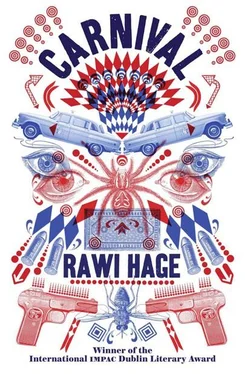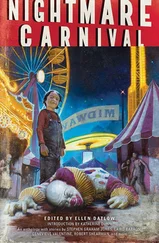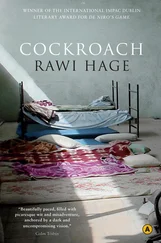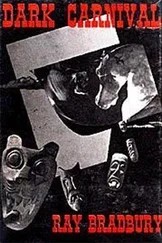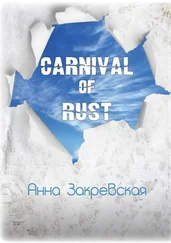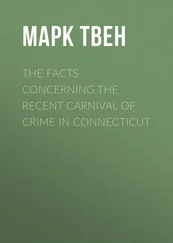His finances were depleted. After moving from one cheap hostel to another and enduring the fights of drunks and the attacks of bedbugs and the smells of mould and hobos, he found himself a room in the basement of a house that he shared with an alcoholic older woman on welfare.
Otto never got along with her. A good-for-nothing religious nutter, was how Otto referred to her. Later on, she would tell anyone who asked that he was a godless, angry man and a loner. They avoided each other.
WHEN OTTO HAD finished talking, I dug my hand into my pocket and pulled out the money I had made that day. I ignored the change and gave him all the bills. He hesitated, looked me in the eye, took it, and said, Brother Fly. He hugged me and he left.
MANUSCRIPT
THIS TIME, IT wasn’t too long before Otto got back in touch. He called me at home. It was early in the morning and he knew that I had just finished my shift. He said he wanted to meet in the afternoon when I woke up.
Around four o’clock, I changed my clothes and brushed my teeth and went to meet Otto. He looked even older now. His cheeks, which had once squeezed his eyes and given him a look of cleverness and experience, had fallen in wrinkles and defeat. His hair had turned white at the sides and he looked even heavier than he had the last time.
It’s the effect of those asylum drugs, he said. They make you put on weight.
I turned off my lantern to indicate to the passengers of the city that I was off-duty and I drove with Otto to the shore. The rain had ceased, but the water from the river still reached the pathway under the viaduct and kept the ground moist. I parked but left the headlights on, and the light skimmed the surface of the river. Through and beneath the car’s rays, gentle waves took on the arched shapes of dolphins inhaling the wet air that crossed between the two shores of the American north.
Here, Otto said, and pulled a bottle from inside his coat.
We stood for a while in silence, drinking and smoking and staring at the water and the sky.
They tried to kill my spirit in that place, Otto said. If you resist and get vocal they try to pacify you. They do it to the masses through all those corrupt, complacent journalists, but people like us, who see through power and greed and protest its savagery, we risk being crushed. It is still a fight. It is still a fight for me, Fly. It will always be, Otto said, and then took a long puff from his cigarette.
I watched a small boat pass under the bridge. It had a torn flag hanging from the back of its deck. The flag, with its fading colours, had turned into a neglected cloth. With my eyes I followed the boat and its white trail of parted water that eventually merged and collapsed onto itself to become waves and a river again. Smoke rose from Otto’s mouth as he spoke.
I say they should feel fear, he said. That is the only way for them to realize what the dispossessed go through. I say we need to show them a different face. They are no longer afraid or embarrassed by the faces of the disfranchised. So we need to show them a mask: a mask of horror. . I say they should tremble and be forced to stand at the cliff of death and hunger.
They are everywhere, Fly.
Who is everywhere? I asked.
Otto threw his cigarette on the ground, stepped on it, extinguished it, and said, Listen, Fly, I’ve been collecting notes and gathering data on some more people.
What for?
Just notes, observations, records. Fly, man, I called you because I need a favour from you. You have to help me here. The pyschiatrist, the one who so-called treated me, Dr. Wu, hails a taxi from his private clinic every Tuesday and Thursday around eight in the evening. I’ve been watching him. He is at the hospital most of the week and those are the only two nights he can be counted on to be there. I have a list of people, Fly. I document their lives and their habits. The hours they leave, the places they eat, their licence plate numbers. . documentation, Fly. We have to gather information, that is how power rules. Knowledge, Fly. Knowledge and organization.
You just park in front of his clinic and bring that monster to me, Otto said, and I will only ask him to read. That is all I want him to do.
Reading is good, I said, but no one should be led to reading by force.
They should be forced to know the other side of the story, Fly.
They do know it, but they don’t. .
Yes, Otto said. But even if they don’t care, they should read back to us, out loud, what we’ve written. And when they do, we should be right there beside them. Maybe their voices will tremble, maybe they will express fear. And that should be enough for us to start fighting back. You and I go back a long way, Fly. And I know that you will help me in this.
What would Aisha think?
Aisha would have asked you to. She loved you and she loved me and she never backed down from a fight. She fought to the last drop of her life. . she belonged to both of us. I shared and I never judged because I loved you both.

ON MONDAY EVENING, I took my car and drove through the downtown, where the Carnival and its people filled the streets with songs and beer mugs and decorations and costumes. I picked up half-naked men and women in masks. I had dressed up as a magician that night to amuse myself.
I drove around the periphery of the grand square where most people gather. I laughed when a woman in fishnet stockings ripped them and asked me if I liked them better that way or before. . Before, I said, and pulled some flowers out of my sleeve for her. A cat-girl asked me if she could rest her paw on my shoulder while I drove her to the big outdoor theatre, and when she paid me in bills, I asked her to open her paw and help herself to the change I owed her. A man who tried to practise a few magic tricks on me lost a ten-dollar bet when I turned his pigeon into a book and his hat into a box of Kleenex.
But the next evening, I left my gas tank almost empty. I combed my hair back and put on fake glasses, a wig, and a top hat in the manner of those Irish elves. The wig reached my shoulders and some of its hair covered the side of my face. I removed my taxi permit, which had my photo and my name on it, and I stuck it in the glove compartment.
I waited in front of the psychiatrist’s clinic. Otto had mentioned that he was short and wore black glasses and that he walked with his eyes towards the ground. He was easy to recognize. At ten past eight, he came towards my car, got in, and gave me an address. I nodded and started to drive. I looked at him in the mirror but he was busy examining a folder, and before he had a chance to look up at the road and protest, I took the ramp that led below the bridge. And I stopped the car.
Finally, he looked up. What is going on? he said calmly.
It is an emergency, I said. I must be out of gas.
Where are we? he said, looking out the side and rear windows.
My apologies for the inconvenience. I’ll be right back, sir. There is a pay phone right here. I’ll be right back, I repeated, not to worry, be right back, and I affected a heavy foreign accent to throw him off.
I saw Otto. He had a purple clown’s wig on his head and a red plastic ball on his nose. A sloppy lipstick job was broadly pasted around his lips and white paint covered his face and neck all the way to his ears. He wore his old leather jacket over his clown suit and he looked cold.
I walked towards the river. I glanced behind me and saw Otto getting into the back seat of the car. And then, after the elephant had balanced on its hind legs and lifted the dog with the curve of its trunk and all the animals had waited through the applause, the clown pulled out a gun, stuck it against the psychiatrist’s ribs, and said: Give me your wallet. Listen, fucker, no one will hurt you here. I just want you to sit still and concentrate. He pulled some pages from his leather jacket, poked the man with his gun, and said, Read from the top down. And the psychiatrist started to read. But the clown interrupted: Read from the top. State the name of the poet and the title. From the top, and he poked Dr. Wu once more.
Читать дальше
